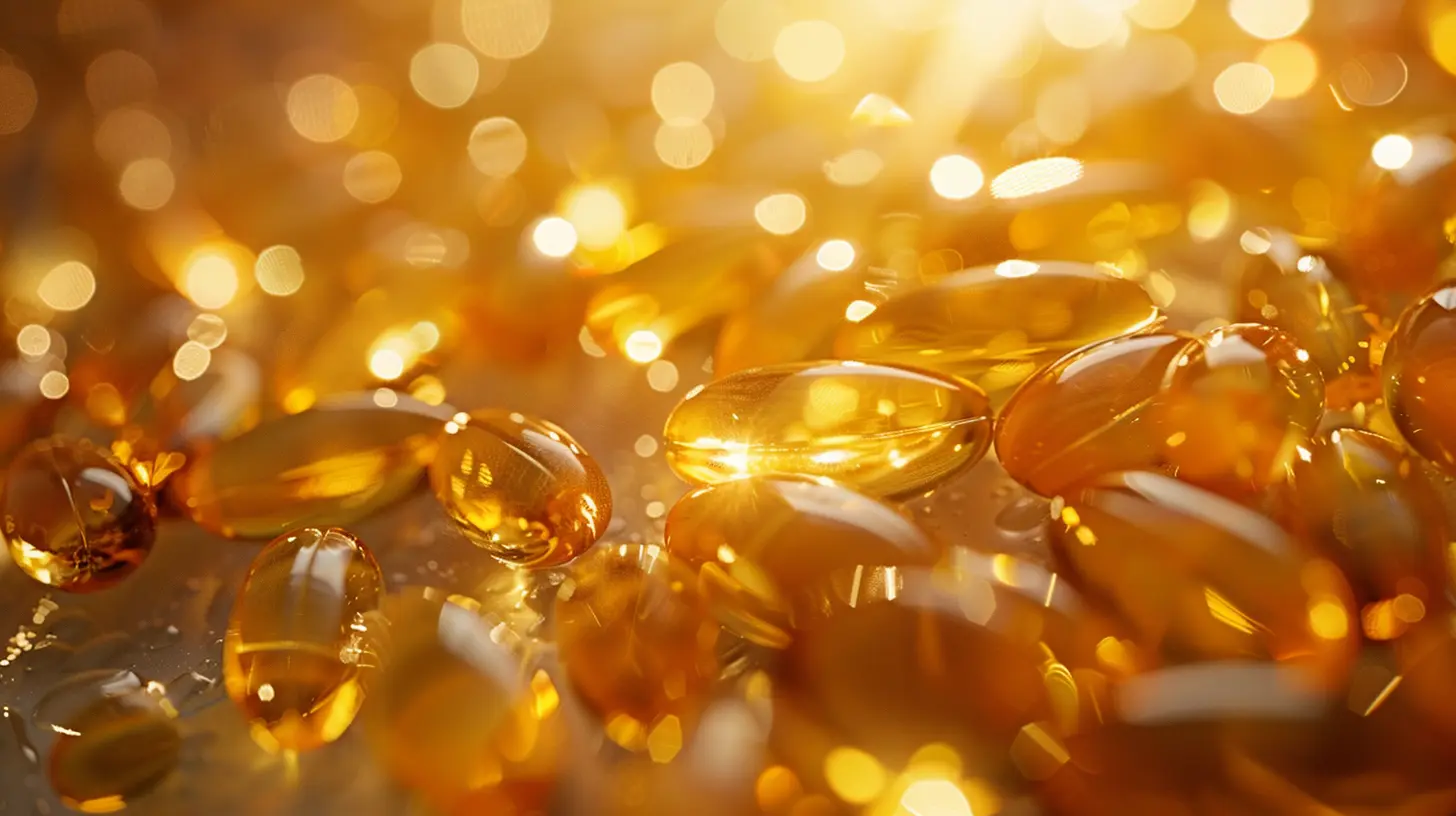What Role Does Vitamin D Play in Women’s Health?
26 May 2025
Vitamin D—often called the "sunshine vitamin"—is more than just a nutrient; it's a cornerstone of overall well-being, particularly for women. While most people associate it with strong bones, its influence extends far beyond that. From hormonal balance to immune support, Vitamin D plays a massive role in women's health at every stage of life.
But what happens when you don’t get enough? And where can you find the best sources? Let’s dive deep into how this vital nutrient impacts women’s health and why you should be paying closer attention to your Vitamin D levels.

Why Is Vitamin D Important for Women?
Vitamin D isn’t just about preventing rickets in kids or osteoporosis in older adults. It affects almost every system in your body. Women, in particular, are at a greater risk of deficiency due to factors like hormonal changes, pregnancy, menopause, and dietary habits.Here’s why this powerhouse nutrient is essential for women:
- Supports Bone Health – Prevents osteoporosis and fractures
- Regulates Mood & Mental Health – Linked to depression and anxiety
- Boosts Immune Function – Helps fight infections and diseases
- Balances Hormones – Plays a role in estrogen and other hormone levels
- Affects Fertility & Pregnancy – Essential for reproductive health
- Reduces Risk of Chronic Diseases – Linked to heart disease, diabetes, and even cancer
Still not convinced? Let’s break it down further. 
Vitamin D and Bone Health: More Than Just Calcium
When you hear about bone health, what’s the first thing that comes to mind? Probably calcium, right? But here’s the thing—without enough Vitamin D, your body can’t absorb calcium properly.For women, especially as they age, this is a big deal. Estrogen helps maintain strong bones, but once menopause hits and estrogen levels drop, the risk of osteoporosis skyrockets. That’s where Vitamin D steps in. It helps calcium do its job, keeping bones dense and strong. Without it, bones become brittle, increasing the risk of fractures.
How Much Vitamin D Do You Need for Bone Health?
- Women under 50: 600 IU per day- Women over 50: 800 IU per day
These are general recommendations, but if you’re at higher risk for osteoporosis, your doctor may suggest higher doses. 
Vitamin D’s Impact on Mental Health
Ever felt down during the winter months? That could be due to a lack of sunlight—and a dip in your Vitamin D levels.Vitamin D and Depression
Research suggests that low levels of Vitamin D are linked to a higher risk of depression, particularly in women. The reason? This vitamin plays a role in serotonin production—the hormone that regulates mood. When serotonin levels drop, so does your sense of well-being.A study even found that women with low Vitamin D levels were more likely to report symptoms of depression than those with sufficient levels. While popping a Vitamin D supplement won’t replace therapy or proper treatment, it can be a helpful tool in maintaining mental health.
Can It Help with Anxiety?
Some studies suggest that Vitamin D deficiency is also linked to increased anxiety. While more research is needed, ensuring adequate levels may support overall mental resilience.
The Link Between Vitamin D and Hormone Balance
Hormones control almost everything in the female body—from menstrual cycles to metabolism, mood, and even weight. And guess what? Vitamin D plays a role in maintaining that delicate balance.Vitamin D and Estrogen
Vitamin D helps regulate estrogen levels, which influence everything from bone strength to reproductive health. Low Vitamin D levels have been associated with conditions like PCOS (Polycystic Ovary Syndrome) and irregular menstrual cycles.PMS and Menstrual Health
Struggle with bad PMS? Some research suggests that women with adequate Vitamin D levels experience less severe PMS symptoms. This could be because Vitamin D affects inflammation and estrogen balance, both of which play roles in period-related discomforts.Vitamin D and Pregnancy: A Must-Have Nutrient
If you’re pregnant or trying to conceive, Vitamin D should be on your radar. It’s critical for both the mother and baby’s development.Why It’s Essential for Pregnancy
- Supports fetal bone and brain development- Reduces the risk of gestational diabetes
- Lowers the likelihood of preterm birth
- Helps prevent pregnancy complications like preeclampsia
Expecting mothers are often advised to get extra Vitamin D to support their growing baby, but many aren’t getting enough. If you’re pregnant, talk to your doctor about your Vitamin D levels.
Immune System and Disease Prevention
Women often juggle work, family, and social responsibilities, leaving little time for self-care. A strong immune system is crucial, and guess what plays a role? Yep, Vitamin D.Vitamin D helps the body defend against infections by supporting white blood cells. Studies suggest it may also reduce the risk of autoimmune diseases like rheumatoid arthritis and multiple sclerosis—both of which are more common in women.
Additionally, research links adequate Vitamin D levels to a lower risk of certain cancers like breast and ovarian cancer. While it’s no magic bullet, maintaining healthy levels can contribute to long-term disease prevention.
Where Can You Get Vitamin D?
Now that you know how vital this nutrient is, the next question is: where do you get it?1. Sunlight (The Most Natural Source)
Your skin can naturally produce Vitamin D when exposed to sunlight. But depending on where you live, your skin tone, and how much time you spend indoors, you might not be getting enough.- Aim for 10-30 minutes of sunlight a few times a week (without sunscreen).
- Darker skin tones need longer exposure to produce the same amount of Vitamin D.
2. Foods Rich in Vitamin D
While few foods naturally contain Vitamin D, some good sources include:- Fatty fish (salmon, mackerel, sardines)
- Egg yolks
- Fortified foods (milk, orange juice, cereals)
- Mushrooms (when exposed to sunlight)
3. Vitamin D Supplements
If you’re not getting enough from sunlight or food, supplements may be the best option. Look for Vitamin D3 (cholecalciferol), as it's more effective than D2.Are You at Risk for Vitamin D Deficiency?
Many women don’t realize they’re low in Vitamin D until symptoms start showing up. Some common risk factors include:- Living in areas with little sunlight
- Having darker skin
- Always wearing sunscreen or covering up
- Being over 50
- Having certain medical conditions (like celiac disease or Crohn’s)
- Being overweight (Vitamin D gets trapped in fat cells)
Symptoms of Vitamin D Deficiency
- Fatigue and low energy- Frequent colds or infections
- Bone or muscle pain
- Depression or mood swings
- Hair loss
If you suspect you’re low, ask your doctor for a simple blood test to check your levels.
Final Thoughts
Vitamin D is an unsung hero in women’s health. From keeping bones strong to balancing hormones and boosting mood, its benefits are undeniable. Yet, many women don’t get enough, whether due to lifestyle factors or lack of awareness.The good news? With a mix of sunlight, nutrient-dense foods, and, if needed, supplements, you can optimize your Vitamin D levels and safeguard your health for years to come. So, next time you step outside, soak in some sunlight—you’re not just brightening your day, you’re boosting your health!
all images in this post were generated using AI tools
Category:
Womens HealthAuthor:

Jackson Mahoney
Discussion
rate this article
3 comments
Nico Green
This article effectively highlights the crucial role vitamin D plays in women's health, from bone density to hormonal balance. However, it could benefit from deeper exploration of individual variability in vitamin D absorption and the impact of lifestyle factors on women's health outcomes.
May 31, 2025 at 3:37 PM

Jackson Mahoney
Thank you for your insightful feedback! I appreciate your suggestion on exploring individual variability and lifestyle factors further; I'll consider this for future revisions.
Zeth Bass
Vitamin D: the unsung hero in women's health, boosting mood, immunity, and bone strength—don't let deficiency dim your shine!
May 28, 2025 at 3:35 AM

Jackson Mahoney
Thank you for highlighting the vital role of Vitamin D! It's essential for overall well-being in women, and I appreciate your enthusiasm for spreading awareness.
Zephira Garcia
Empower your health with vitamin D!
May 26, 2025 at 5:01 AM

Jackson Mahoney
Absolutely! Vitamin D is essential for women's health, supporting bone strength, immune function, and even mood regulation.



